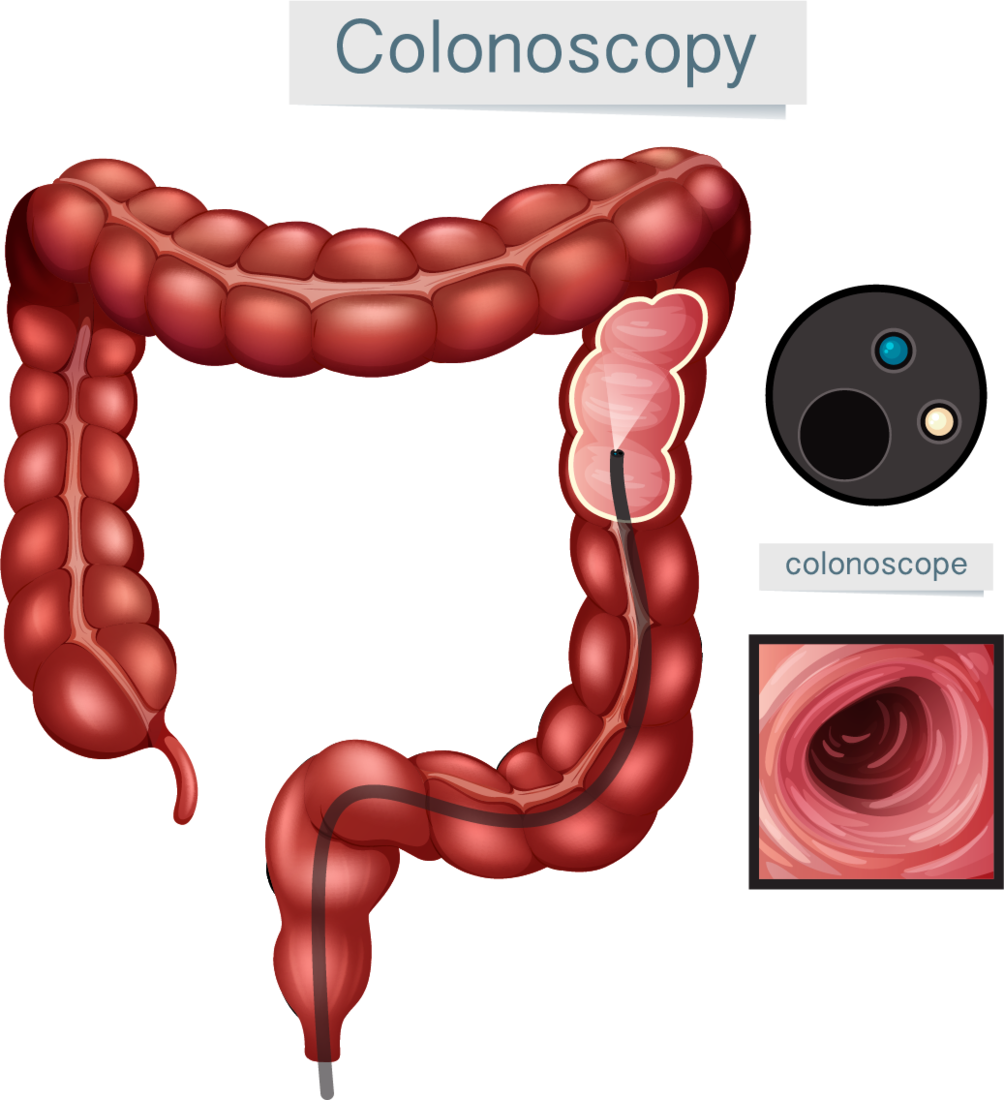A colonoscopy can save life
Proper screening is commonly the best medicine.
ColonoscopyColonoscopy is a procedure used to diagnose abnormalities in the colon. It is used as a screening test for bowel cancer and polyps (abnormal growths) of the colon and rectum. It is a long thin flexible tube with a camera and light at the end. Through the colonoscopy your endoscopist (a specialist who performs colonoscopy) can identity and remove some of the polyps. |  |
What is screening?
Screening is the process of examining healthy patients for undiagnosed colon polyps or cancer. The aim of screening is to detect cancer at its earliest stage so that further treatment is highly curative.
Often very small amounts of blood, invisible to the naked eye, leak from polyps of bowel cancer and pass into bowel movements before any symptoms are noticed.
A bowel cancer-screening test called a Faecal Immunochemical Test (FIT) can detect these small amounts of blood in bowel movements.
The test looks for blood in your bowel movement, but not for bowel cancer itself.
If the test is positive you will need an urgent colonoscopy. However the presence of blood may also be due to conditions other than cancer, such as polyps, haemorrhoids, or inflammation of the bowel. Your surgeon can discus these conditions in details after reviewing your history and examination.
Colonoscopy is also recommended to evaluate these symptoms:
| Colonoscopy PreparationYour endoscopist will discuss the dietary changes and medication restrictions prior to the procedure The day before the colonoscopy, most patients will need bowel prep. This will clean the bowel of stool to get good visualization of the bowel surface. The preparation is in the form of liquid laxative. The Colonoscopy is done by an experienced trained endoscopist and intravenous sedation is given throughout the procedure so that you remain comfortable. |
What happens after the colonoscopy?Most patients do not remember details of the procedure afterwards due to the effect of the sedation Someone will need to drive you back home You can go back to a normal diet Your endoscopists will advice which medications you can restart Your endoscopist will be able to reassure or advise you whether there was something detected, immediately after the procedure, even without the results of biopsies. Most results of biopsies take 2 weeks to process. Most patients return back to their normal activities the day after the colonoscopy | What are the benefits & risks involved?Colonoscopy helps for bowel cancer screening and detection During the procedure some of the polyps can be removed and sent for analysis Like any procedure there are small risks involved. These includes:
|
Open Access Colonoscopy and Gastroscopy is available
GP's or specialists can refer patients directly for Colonoscopy and Gastroscopy.
Please directly call Mr Jootun rooms and we will arrange a booking and contact the patient